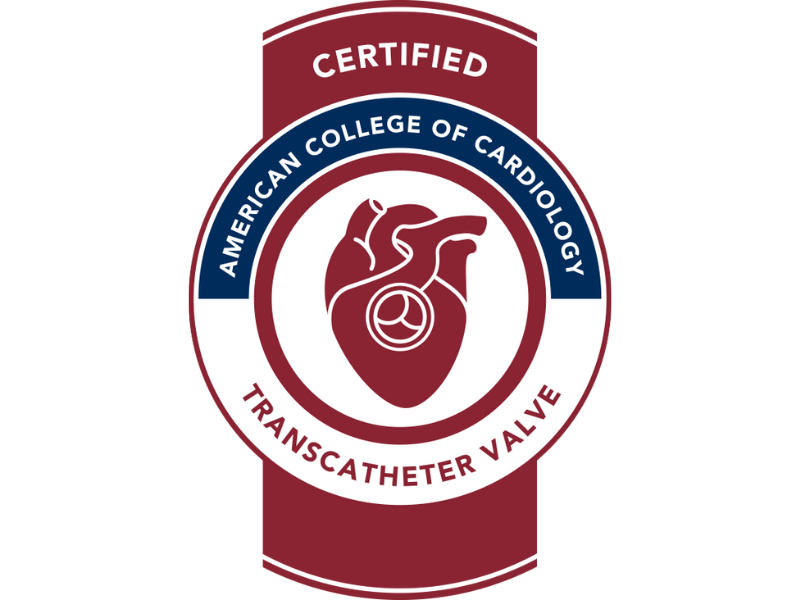The unique expertise at Carle HVI allows patients in the area to find specialty services close to home.
“As patients get older, they develop problems with their heart valves,” said Sanjay Mehta, MD, FACC, FSCAI, Structural Heart Director. “Open Heart Surgery used to be the only way to address these conditions,” said Dr. Mehta. “This minimally invasive treatment received FDA approval, but patients had to go further away for it, like to Chicago, and we asked, ‘why shouldn’t we have that support here?’”
Initially, the TAVR procedure was approved for high surgical risk patients only. However, successful outcomes have led the FDA to approve TAVR for even low surgical risk patients if they meet criteria and evaluation by the heart team.
During the TAVR procedure, the physician will insert a catheter into the groin through a small arterial puncture. An X-ray then guides the catheter through the aorta. A new valve is placed inside the damaged valve allowing restoration of blood flow.
Mitral regurgitation is “leaking” or partial flow of blood backwards through the mitral valve. The TEER procedure is a Transcatheter treatment option to reduce mitral valve regurgitation. Approved for patients with degenerative mitral valve that are high risk for surgical approach and for heart failure patients with functional mitral regurgitation optimized on medical therapy.
During TEER procedure, a catheter is inserted in the femoral vein and is placed into the left atrium using X-ray and TEE guidance. A clip grasps both mitral valve leaflets to reduce the amount of regurgitation.
Both of these procedures provide a minimally invasive treatment with reduced hospital stay and an average recovery time that is only about three days.
The Carle team has been performing TAVR for more than ten years and TEER for three years. “We get referrals from within our Carle Health system as well as outside referrals from local partners and rural locations who do not have these treatment options,” said Michele Priest, Structural Heart Program Coordinator.
Part of the accreditation process involved ACC reviewing our quality data from National Cardiology Database Registry (NCDR). The multidisciplinary heart team monitors patient treatment plans and outcomes closely. This ensures we are following research based best practice standards and ensuring high quality care delivery at Carle.
“The accreditation process took approximately one year to complete,” said Chris Goin, Cardiovascular Service Line Coordinator. “The American College of Cardiology has written standards that have to be met to be awarded the certification.”
The re-accreditation process for this certification occurs every three years with an annual submission of documentation to the ACC to show the work done to care for patients receiving transcatheter valve procedures. According to the ACC website, Carle is the first hospital in the state of Illinois to have received the ACC Transcatheter Valve Certification.
“This certification lets the patients and public know that at Carle we strive for excellence and highest quality of care,” said Dr. Mehta.
For more information, visit Carle.org.
Categories: Culture of Quality
Tags: American, Aorta, Association, Award, Cardiology, Clip, College, Culture, Heart, HVI, Mitral, of, Open, Quality, Recognition, Replacement, Surgery, Transcatheter, Valve
